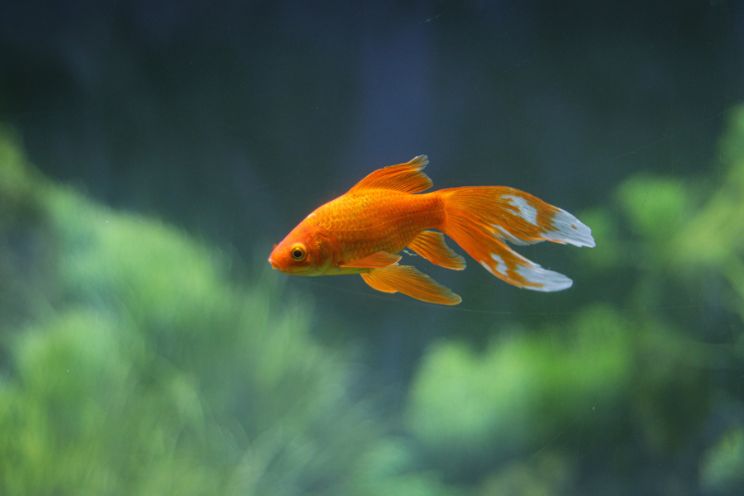Fish are found all over the world in all different conditions; many live in the ocean, rivers, streams and lakes. Others live under waterfalls, in caves, canals, some in flooded forests and some even live in puddles!
Aquatic creatures are some of the most difficult animals to keep alive.
This is because not only do you have to consider diet, lifestyle, sociability, correct housing, and so on, you also have to fight the water quality and maintain a constant balance, not only keeping the water from becoming toxic, but also matching the water’s condition to the wild habitat of each fish.
Fish can be difficult to read too, and it can be hard for beginners to understand fish behaviour and tell what is good and what is bad.
This can make fish seem hard to look after to newcomers, however, there are a handful of fish which we call “beginner fish”, or “starter fish” that are very hardy, forgiving of beginner mistakes and are relatively easy to keep alive and learn from.
Takeaways:
- Hardy Fish for Beginners: “Hardy” fish, like White Cloud Mountain Minnows, are strong and can survive harsh conditions, making them ideal for beginners. They are forgiving of beginner mistakes and thrive in a range of environments.
- Goldfish Are Not Ideal for Beginners: While goldfish are popular, they are not suitable for small aquariums or beginners due to their large size, waste production, and special care requirements.
- Characteristics of Easy-to-Care Fish: Low waste output, easy feeding, resistance to poor water quality, and adaptability to various pH levels make some fish easier to care for.
- Low-Maintenance Fish: Fish with low metabolisms, like Danios and White Cloud Mountain Minnows, require less frequent feeding and care, making them easy for beginners to manage.
- Top Beginner Fish: White Cloud Mountain Minnows are highly recommended for beginners due to their adaptability, small size, low waste output, and peaceful nature. Other options include Platies, Guppies, and Tetras.

What are hardy fish?
You may hear fishkeepers use the term “hardy” a lot – it may seem like an odd term to use when describing a fish, so what does it mean?
When describing a fish as “hardy” we mean that the fish are strong, and that they can withstand a range of harsh conditions that many other fish cannot, such as high temperature fluctuations, harsh changes in pH, hardness, poor water quality, ect.
It is not to say that these fish can live comfortably in poor condition, just that they are better suited to survive through beginner mistakes than many other fish in the aquarium hobby, making them ideal for newcomers to fish keeping before they learn the ropes.
Are goldfish beginner fish?
Although this is The Goldfish Tank, sadly, we cannot recommend goldfish as beginner aquarium fish, as they grow large, produce lots of waste, live a long time, can have special dietary requirements and can be problematic under certain conditions.
- Goldfish are not an easy fish to start off with, especially if you only have a small aquarium, which most beginners do.
Ponds are a different story however, and we always recommend starting with goldfish or koi if it is your first pond.
It is just keeping goldfish in small starter aquariums which we advise against, unless you are experienced.
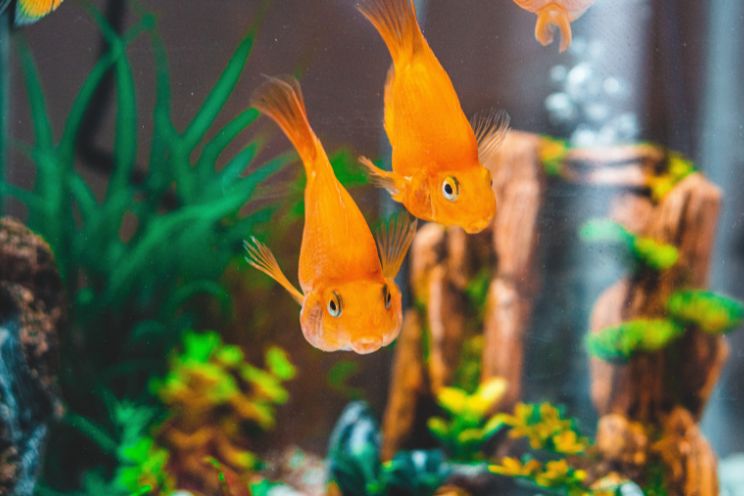
What makes a fish easy to take care of?
There are certain things we look for in fish which can make them easier or harder to keep. Some of these aspects are applicable to all fish, such as having a low waste output and being easy feeding.
The main things we look for that apply to all fish are as follows:
- Low bioload (waste output)
- Easy to feed
- Resistant to poor water quality
- Manageable behaviour
- Well adjusted to aquarium life
- Tolerable to a range of pHs
- Able to live in a variety of environments
- Low maintenance
If a fish fits some or all of these, then it fits the category of beginner fish, and it will often be recommended as an “easy” fish to keep.
Some aspects of the fish can be more specific to a person or area. For example, a fish like a guppy, needs to live in water with a higher calcium content; what we call “hard water”.
For someone who lives in an area without hard water, guppies may not be an easy starting choice.
However, someone who has hard tap water, with a high mineral content, will find these fish easy to keep as they will not need to take extra steps to buffer the water.
A person with soft water can certainly still keep guppies, but they will likely need to add minerals to the water themselves.

What is the most low maintenance fish?
All fish can be very demanding or very undemanding depending on the way they are kept.
Those who keep their fish in the most artificial way possible, will find themselves performing more maintenance.
Others who opt for a natural setup, with live plants, cleanup crew and a stable environment, will find they have to do very little work in comparison to keep their fish alive and thriving.
However, it is true that some species of fish are more maintenance than others.
For example, a discus is probably one of the most high maintenance fish commonly kept in the hobby.
A fish which is low maintenance will produce little waste, have a slower metabolism and be less active.
Low bioload fish
Fish with a low waste output are usually small schooling fish like Tetras or Rasboras – they have amongst the lowest bioload of all freshwater fish groups, which means that if kept in a planted tank, the amount of water changes and filter cleans needed will be very low in comparison to other fish.
Fish with a slow metabolism are usually coldwater fishes and less active predators, like Bichirs and Catfishes.
While neither of these fish are beginner friendly by any means, their low metabolic rate means they can go many days without food, making them relatively low maintenance pets.
Cold water and temperate fish like Danios, Mountain Minnows, Variatus Platies and Black Skirt Tetras are all excellent starter fish that have slow metabolisms and only need feeding a few times a week, so long as they are kept in cooler water.
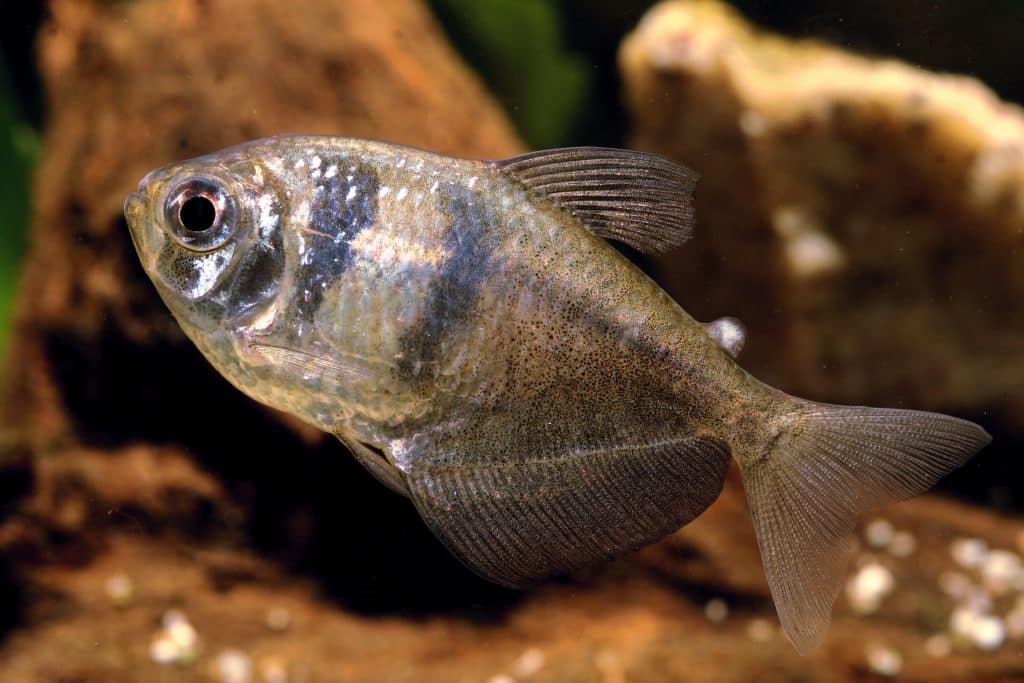
Are tropical fish hard to keep?
A common misconception amongst people who want to get into fishkeeping, is that coldwater fish are easier because they do not need a heater.
This information is false – tropical fish as a whole are no more difficult to keep than any coldwater fish.
The only difference is the temperature. Glass heaters nowadays pretty much run themselves, they have built in thermostats, are reliable, affordable, easily available and are difficult to break.
They are very easy to use; simply set the temperature you want at the top by turning the dial, place them in your tank at a 45 degree angle and allow them to settle for 30 minutes.
Then simply plug it in and it will heat your tank to the temperature you set and maintain that heat.
There is also much more variety in the tropical hobby, which can give beginners more options, especially for small tanks.

What is the cleanest fish for a tank?
In short, there is no such thing as a clean aquarium fish, or “cleaner fish” – all fish produce waste, however, some more than others.
What we can tell you is that the fish often labelled as “cleaner fish”, such as Plecos and Catfish, will usually produce more waste than your other fish inhabitants!
Plecostomus in particular are not a beginner fish for this reason. Any species, including Bristlenose and Snowball Plecs (two of the smallest species) will produce high amounts of waste and ammonia.
Plecos will also chew on and dig up plants, will display boisterous or even aggressive behaviour sometimes, and all plecos have specialised scales which cannot tolerate certain fish medication.
However, there are fish which produce little waste, will eat from all levels of the tank, leaving no rotten food, eat algae, are easy to look after and are peaceful community fish.
These fish are livebearers:
- Mollies;
- Platies and;
- Guppies;
… are all amazing fish that will keep your tank clean.
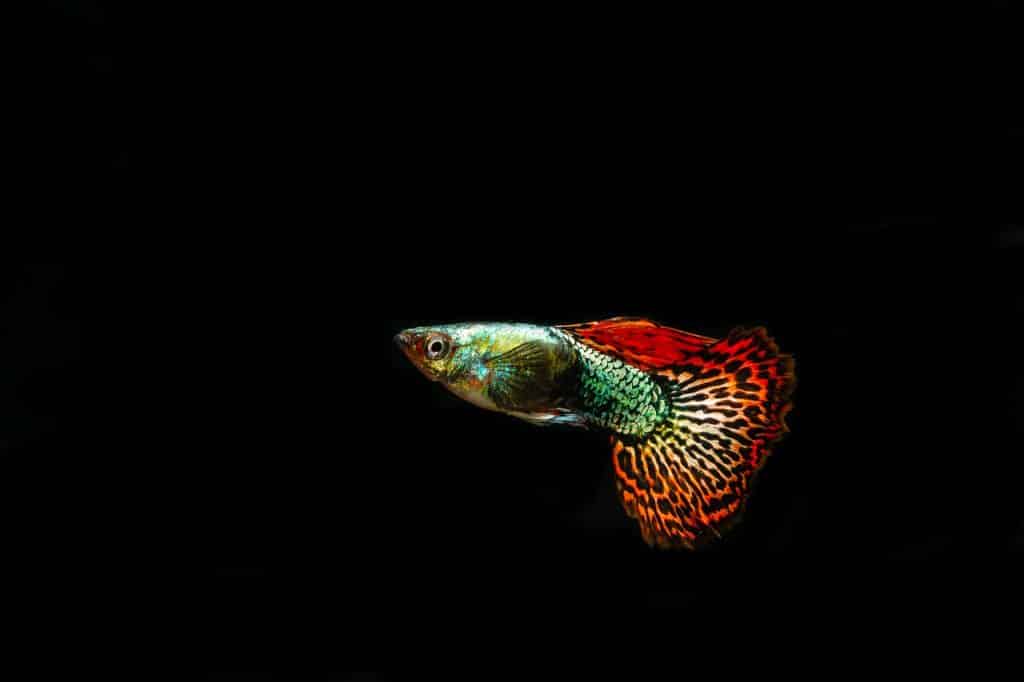
Although beginners can sometimes struggle to keep Mollies and sometimes even Guppies, they are amazing fish to have in a community tank because of their peaceful nature, willingness to eat anything left behind and ability to eat algae.
Platies are amongst the easiest of livebearers to keep and so they are one of the top fish in our list for beginners!
A tip for beginner livebearer keepers is to try and obtain fish that have been bred in freshwater, as they will be longer lived and will acclimate to your tank better.

What is the easiest fish for beginners?
By going over some of the main points we listed for things that make a fish easy to keep, we can try to pick out the ideal starter fish.
To recap, the fish needs to:
- Have a low bioload
- Be easy to feed
- Be resistant to poor water quality
- Be peaceful
- Be well adjusted to aquarium life
- Have a high tolerance to pH differences
- Be able to live in a range of environments
- Be low maintenance
Some other factors we can consider are things like availability and costs, are the fish easily available in your area, and are they expensive to purchase and to keep.
One fish that fits all these categories is the “White Cloud Mountain Minnow”. It is perhaps the best starter fish in the world for many reasons.
White Cloud Mountain Minnows
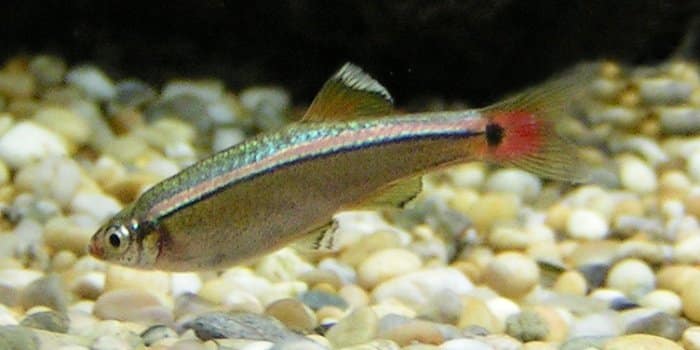
White clouds are very well adapted to life in captivity, as they have been bred by aquarists and conservationists for many decades. The reason for this is because white clouds are functionally extinct in the wild due to pollution, habitat destruction and tourist activity.
In an effort to preserve them, they were brought into the aquarium hobby.
Wild mountain minnows do not exist, so when you purchase them, they will always be captive bred and well adjusted to aquarium life.
As well as this, white clouds are perhaps one of the cheapest and most widely available fish in the aquarium hobby – they are sold at pretty much every pet store in most places in the world!
They can live in a wide range of water parameters and withstand dips in water quality.
Although like all fish, they cannot live in ammonia ridden water so still need water changes and a cycled tank in order to survive.
Their small size and low waste output also makes them ideal for smaller tanks and their peaceful nature makes them great for communities.
They can also live in either cold or warm water, meaning a heater is not necessary, which can lessen their expenses.
If we were to give them a score based on their adaptability, cost, availability, difficulty and enjoyment (how fun they are to keep), we would score them 5/5!
White Clouds are an amazing example of a starter fish!
Easiest fish to take care of
Here we will give a list of some fish we often recommend to beginners.
These fish are easy to keep, are great for learning and make amazing pets:
- White Cloud Mountain Minnow
- Platy Variatus
- Southern Platy (tropical variety)
- Zebra or Leopard Danio
- Black Skirt Tetras
- Black or White Widow Tetras
- Black Phantom Tetras
- Harlequin Rasboras
- Lambchop Rasboras
- Paleatus Corydoras (salt and pepper cory depending on your local)
- Rosy Barbs
- Cherry Barbs
- Guppies
- Freshwater Mollies
- Red Dwarf Gourami
- Ricefish
All of these are great for your first aquarium and are easy to care for as far as fish go, while still being very interesting and amazing fish to keep!
FAQ’s:
1. What are the easiest fish to take care of?
Fish like White Cloud Mountain Minnows, Platies, Guppies, and Zebra Danios are the easiest for beginners to manage due to their low maintenance, adaptability, and peaceful nature.
2. Are goldfish good for beginners?
Goldfish are not ideal for beginners, especially in small aquariums, due to their large size, high waste production, and special care needs.
3. What does “hardy” mean in fishkeeping?
“Hardy” fish are resilient and can survive in fluctuating water conditions, making them easier for beginners to care for as they can handle common mistakes.
4. What is a low bioload fish?
A low bioload fish produces little waste, making it easier to maintain water quality. Examples include Tetras and Rasboras.
5. What is the cleanest fish for a tank?
No fish is truly “clean,” but fish like Mollies, Platies, and Guppies are good at consuming leftover food and algae, helping to keep the tank clean.
6. Do tropical fish require more care than coldwater fish?
Tropical fish need heaters to maintain water temperature, but modern heaters are reliable and easy to use. Tropical fish are not inherently harder to care for than coldwater fish.
7. How often should I feed beginner fish?
Beginner fish typically have slower metabolisms and require less frequent feeding, about 2-3 times a week for fish like Danios and White Cloud Mountain Minnows.
